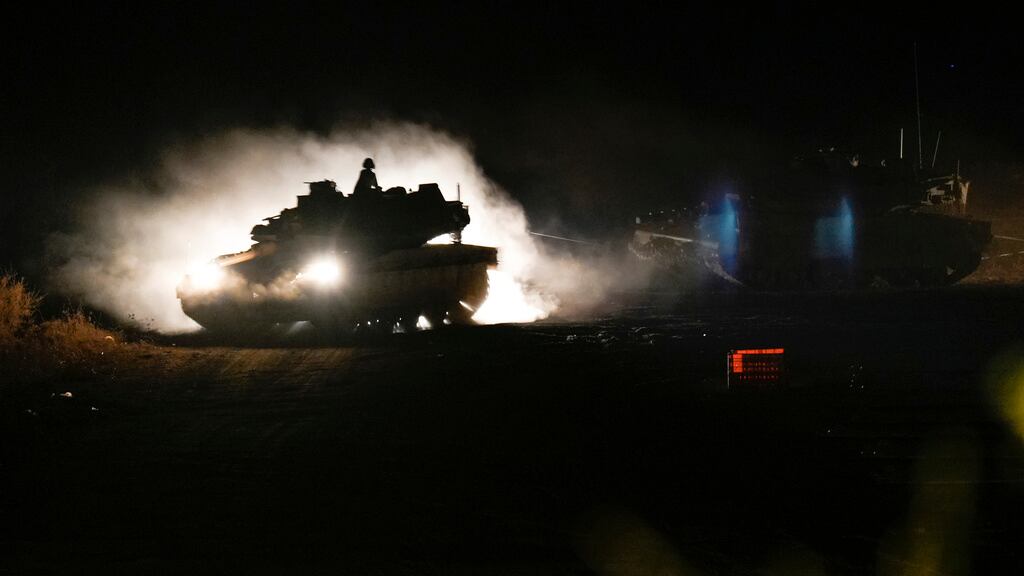Early Tuesday morning, Israel began a ground operation in southern Lebanon against military targets of Hezbollah, opening a new front in its war against the Lebanese political-military group, to which it dealt a severe blow on Friday by killing leader Hassan Nasrallah in an airstrike in Beirut.
PUBLICIDAD
The military forces ensured that the incursion will be "limited and localized" and NBC News stated that it would last "days and not weeks" in a confined geographical area.
PUBLICIDAD
In a brief announcement, Israel reported that it was attacking Hezbollah targets in areas near the Israeli border, and that air force units and artillery were carrying out attacks in support of ground forces.
"A few hours ago, the IDF began limited, localized, and selective ground incursions," the statement said. "These targets are located in villages near the border and pose an immediate threat to Israeli communities in northern Israel."
The raid took place shortly after it was approved by Israeli political leaders, as reported by The Associated Press.
How far could the Israeli operation in Lebanon go?
Although Israel has not provided details of its objectives, various analysts predict that it could advance as far as the Litani River, located about 30 kilometers from the border, with the goal of pushing back Hezbollah and its artillery.
According to the New York Times, citing three Israeli officials, the invasion plan involved operating in a narrow strip of land bordering the northern side of the border. They also stated that the forces involved in this invasion consisted of small commando groups, but the plan could evolve into a larger invasion.
There are still no reports of direct confrontations between Israeli troops and Hezbollah militants, who fought for a month on Lebanese soil during the 2006 war.
What is the objective of Israel's attack?
Israel and Hezbollah have exchanged fire almost every day since the war in Gaza began, displacing tens of thousands of people in Israel and Lebanon.
Israel says it will continue attacking Hezbollah until it is safe for families to return to their homes near the border with Lebanon.
On Monday, Hezbollah promised to continue fighting even after their historic leader, Hassan Nasrallah, and other senior officials were recently eliminated by Israeli attacks. The group's interim leader, Naim Kassem, said in a televised statement that if Israel decides to launch a ground offensive, Hezbollah is ready and that the commanders killed in recent weeks have already been replaced.
The man who will likely assume leadership of the organization is Hashem Safieddine, cousin of Nasrallah, who oversees Hezbollah's political affairs.
Israeli attacks in recent weeks have targeted what the army says are thousands of militant targets across much of Lebanon. More than 1,000 people have died in the past two weeks, with almost a quarter of them being women and children, according to the Ministry of Health.
This Monday, Hamas announced that its chief commander in Lebanon, Fatah Sharif, died along with his family in an airstrike in the Al-Buss refugee camp, in the southern port city of Tyre. The Israeli army confirmed that they had carried out the attack.
